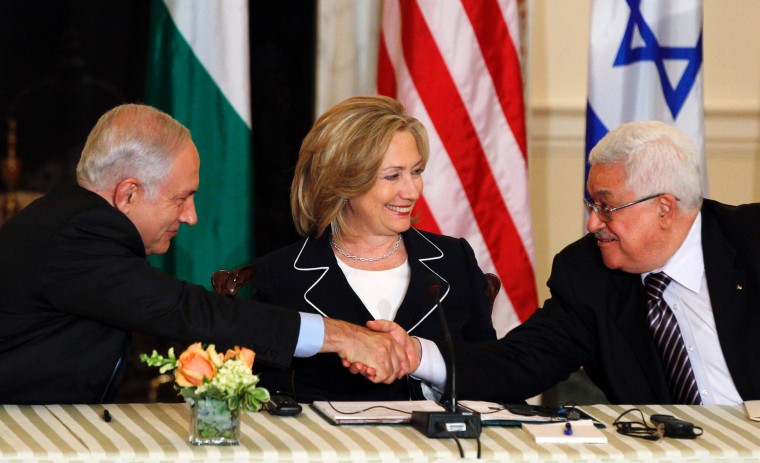Israeli-Palestinian peace is American responsibility
On Sept. 1, peace talks were scheduled to begin between the Prime Minister of Israel, Benjamin Netanyahu, the President of the Palestinian National Authority, Mahmoud Abbas, and the leaders of Jordan and Egypt as well.
There have been peace talks under previous presidencies, but they have been met with limited and mostly intangible success.
The talks began just weeks before Israel is scheduled to lift its moratorium on building in the West Bank on Sept. 26. The West Bank is seriously contested territory, as Palestinians claim it under a Palestinian state.
Given the limited success of previous talks and the heated context that surrounds the current ones, many argue that peace talks between the opposing nations will be almost impossible, and that whatever happens during the talks surely will not promote peace.
However, who is to say that we should stop trying?
As President Barack Obama said on the first night of the talks, “We are but five men… Yet when we come together we will not be alone. We will be joined by the generations of those who have gone before and those who will follow.”
These five men are not ignorant or illiterate; they know that peace will produce better results than warfare.
The Middle East is not just another area of the world. It is a landscape so important to the modern world, with such a complex and ancient history, that it is virtually impossible for it to be left alone.
Many argue that it is unwise to be engaging in peace talks so soon after leaving Iraq. Can’t the United States just mind its own business for a change?
Actually, the United States must do the exact opposite. As a leading world power and a longtime ally of Israel, we can’t just let this tension slide. Turning a blind eye would be an unwise move for the U.S., especially when one of our closest allies is in need of help.
Because peace talks will benefit Israel, ignoring its problems would weaken our friendship. We should remain dedicated to helping achieve peace in the Middle East, as well as other parts of the globe.
However, achieving peace does not mean bringing our ideals and values to countries with cultures much older than our own. With Israel and Palestine, Obama and Secretary of State Hillary Clinton can hopefully be the perfect examples of what the United States represents: a country seeking peace and prosperity for all its neighbors and all those needing it.
This peace deal will not be easy. There is a great chance that these talks will go nowhere, and that the animosity that has been felt for generations will remain wholly intact.
What are we to do if that happens?
The logical answer would be to abandon the issue and let the two rivals settle it amongst themselves while the United States turns a blind eye. But the better answer would be to keep on trying. Another try after a failed attempt wouldn’t have to come immediately, and shouldn’t come immediately for that matter.
If these peace talks fail, we will learn from past mistakes, find a new, innovative approach and move on.
Getting lost in the clouds of emotion and disagreement now will undermine the motivation of those who try again in the future. The precedent will have been set for complacency, apathy and anger.
Peace talks are not easy. Peace in general is a lot harder than war. But if we keep striving for it, as we do by taking these first steps with Israel and Palestine, we will get there.







